
Premium Coral Sands: Natural Crushed Coral Sand for Aquariums
Industry Trends and the Evolving Role of Natural Filtration Media
The global demand for high-performance, sustainable, and biologically compatible filtration media in industrial and commercial water treatment applications continues to expand. As environmental regulations tighten and operational efficiencies become paramount, B2B sectors are increasingly seeking specialized solutions that offer more than just mechanical particulate removal. This shift has propelled materials like coral sands to the forefront, particularly for systems requiring precise pH buffering, mineral supplementation, and enhanced biological filtration capabilities.
Key trends driving this demand include the proliferation of recirculating aquaculture systems (RAS), the necessity for stable aquatic environments in scientific research facilities, and the optimization of water chemistry in municipal and industrial treatment plants. The unique properties of natural calcareous media, such as high porosity and calcium carbonate content, make them indispensable for these advanced applications.
Furthermore, the emphasis on eco-friendly solutions and the reduction of chemical additives has solidified the position of natural media like crushed coral sand as a preferred choice. Companies in critical sectors, from petrochemical to specialized metallurgy, are recognizing the long-term benefits of investing in filtration media that not only purify water but also actively contribute to its chemical and biological balance, thus extending equipment service life and reducing operational complexities.
The Engineering of Coral Sands: From Sourcing to Specialized Filtration Media
Our wholesale coral sands for aquarium water filtration are meticulously processed to meet the stringent demands of B2B applications. The manufacturing process ensures a high-quality, consistent product optimized for superior performance.
Product Materials and Sourcing
The primary material for our coral sands is naturally calcified coral skeletons, predominantly composed of calcium carbonate (CaCO3). Sourcing is conducted ethically and sustainably from ancient, non-living reef deposits or certified collection sites to minimize environmental impact. This ensures a consistent mineral composition, free from organic contaminants often found in live reef environments. The raw material undergoes initial inspection to verify its purity and structural integrity.
Detailed Manufacturing Process Flow
1. Raw Material Acquisition & Pre-treatment
Selected calcified coral rock is harvested, transported, and then subjected to an initial dry cleaning process to remove loose debris, large foreign particles, and surface impurities.
2. Primary Crushing (Milling)
Large coral rocks are fed into industrial crushers. This initial crushing phase reduces the material to a coarse aggregate, preparing it for subsequent refining stages. This creates the foundational crushed coral sand material.
3. Secondary Crushing & Grinding
The coarse aggregate undergoes further crushing and grinding processes to achieve the desired particle size distribution. Advanced milling techniques ensure uniform particle shape and minimize fine dust, crucial for filtration performance.
4. Multi-Stage Screening & Sizing
Precision vibratory screens are employed to classify the coral sands into specific grain sizes (e.g., 1-2mm, 2-5mm, 5-10mm). This critical step ensures that the product meets exact granulometric specifications for different filtration applications.
5. Thorough Washing & Rinsing
The classified coral sands are subjected to multiple washing cycles using purified water to remove any residual dust, organic matter, or fine particles. This ensures extreme cleanliness and prevents turbidity upon initial application.
6. Drying & Sterilization
The washed material is then dried in industrial kilns to achieve a low moisture content, preventing agglomeration and inhibiting microbial growth during storage. For specific applications, an additional sterilization step may be employed.
7. Quality Control & Packaging
Each batch undergoes rigorous quality control testing (e.g., particle size analysis, chemical purity, pH stability, density) conforming to international standards like ISO 9001 and relevant ANSI/AWWA specifications. The final product is then packaged in industrial-grade, moisture-resistant bags or bulk container111s.
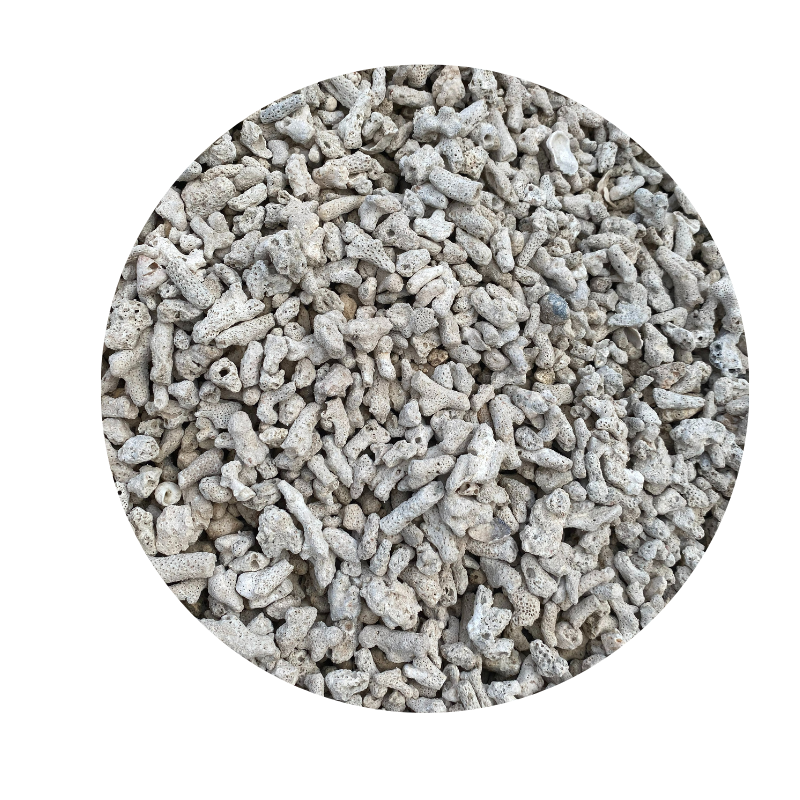
Testing Standards and Service Life
Our coral sands adhere to stringent quality benchmarks, including ISO 9001:2015 for quality management systems and ANSI/AWWA B100-17 for filtering material standards. These certifications guarantee product consistency, purity, and performance. The inherent durability of calcium carbonate, coupled with its controlled processing, contributes to an exceptionally long service life in filtration applications, often exceeding 5-10 years under typical operating conditions, significantly reducing replacement frequency and maintenance costs.
Target Industries and Advantages
This specialized filtration media finds critical applications across diverse B2B sectors, including:
- • Aquaculture & Marine Research: Essential for maintaining stable pH and alkalinity, providing buffering capacity against metabolic acids, and supplying vital trace elements for aquatic life.
- • Municipal Water Treatment: Used in specialized stages for pH correction and remineralization, improving water palatability and reducing pipe corrosion.
- • Pharmaceutical & Biotechnology: In systems requiring highly controlled water parameters, preventing contamination and ensuring product integrity.
- • Specialized Industrial Processes: In areas like food processing, beverage production, and cooling towers where water chemistry directly impacts operational efficiency and equipment longevity.
In these scenarios, the advantages of our coral sands are clear: enhanced corrosion resistance by stabilizing pH, energy savings through reduced chemical dosing for pH adjustment, and superior biological support for nitrification processes in biofilters, leading to healthier systems and reduced operational expenditures.
Technical Specifications and Performance Parameters
Understanding the precise technical specifications of coral sands is crucial for engineers and procurement specialists selecting filtration media. Our product, "Wholesale coral sand aquarium water filtration special," is characterized by specific physical and chemical properties that ensure optimal performance.
Product Specification Table: Shunshun Mining Coral Sand
| Parameter | Typical Value/Range | Method/Standard |
|---|---|---|
| Chemical Composition (CaCO3) | ≥ 98% | X-Ray Fluorescence (XRF) |
| Grain Size Distribution (typical) | 1.0 - 5.0 mm (Customizable) | Sieve Analysis (ASTM D422) |
| Uniformity Coefficient (UC) | < 1.6 | AWWA B100-17 |
| Specific Gravity | 2.6 - 2.8 g/cm³ | ASTM C128 |
| Bulk Density (dry) | 1.3 - 1.5 g/cm³ | ASTM C29 |
| Hardness (Mohs Scale) | 3.0 - 4.0 | Mohs Hardness Test |
| Porosity (Effective) | 35 - 45% | Calculated |
| pH Buffering Capacity | Effective in maintaining pH 8.0-8.4 | Titration Test |
| Acid Solubility (HCl 10%) | ~10% (by weight) | Gravimetric Method |
| Trace Elements (Beneficial) | Mg, Sr, K (ppm levels) | ICP-OES |
These parameters underscore the intrinsic value of coral sands for applications demanding not only physical filtration but also precise water chemistry modulation. The high CaCO3 content directly translates to robust pH buffering capabilities, while controlled grain size ensures optimal hydraulic performance and minimal head loss in filtration systems.
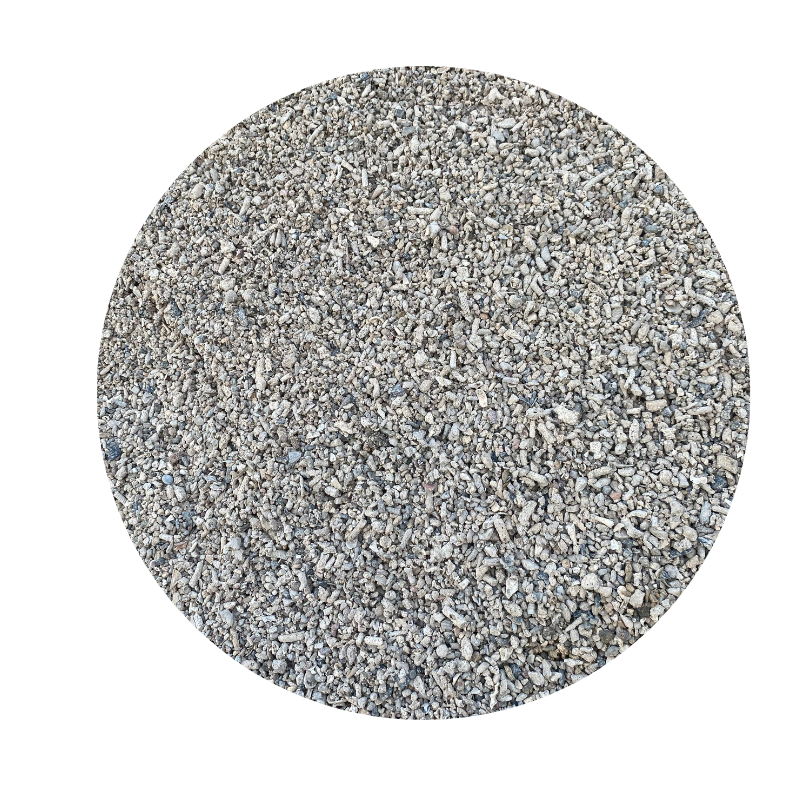
Technical Advantages in Advanced Water Management
The selection of filtration media is a critical engineering decision impacting system efficiency, longevity, and overall operational cost. Our crushed coral sand offers a suite of distinct technical advantages over conventional media, making it a superior choice for a wide array of demanding B2B applications.
Optimized pH Buffering and Alkalinity Stability
Unlike inert filtration media such as silica sand, coral sands actively dissolve to release calcium and carbonate ions into the water. This provides a robust buffering capacity, crucial for maintaining stable pH levels (typically in the 8.0-8.4 range) and preventing drastic pH swings, which can be detrimental in sensitive biological systems like aquaculture or certain chemical processes. This inherent capability minimizes the need for continuous chemical pH adjusters, leading to significant cost savings and reduced chemical handling risks.
Enhanced Biofiltration Support
The porous structure and large surface area of our coral sands provide an ideal substrate for the colonization of beneficial nitrifying bacteria. These bacteria are essential for converting toxic ammonia and nitrites into less harmful nitrates, a cornerstone of effective biological filtration. The stable pH environment created by the coral also optimizes bacterial metabolic rates, leading to more efficient and resilient biofilters, particularly vital in recirculating aquaculture systems (RAS) and wastewater treatment.
Controlled Mineral Release and Water Hardness
Beyond pH buffering, coral sands contribute essential minerals like calcium and magnesium, increasing general hardness (GH) and carbonate hardness (KH). These minerals are vital for the osmoregulation of aquatic organisms and can also mitigate corrosion in metallic piping systems by promoting a protective scale layer, thereby extending the service life of infrastructure in water supply and drainage networks.
Exceptional Durability and Longevity
Processed for optimal hardness and density, our coral sands resist degradation and compaction, ensuring consistent hydraulic performance over extended periods. This results in reduced backwash frequency, lower water consumption for maintenance, and an overall longer media lifespan compared to less durable alternatives. This translates to lower operational expenditures and greater reliability for B2B operations.
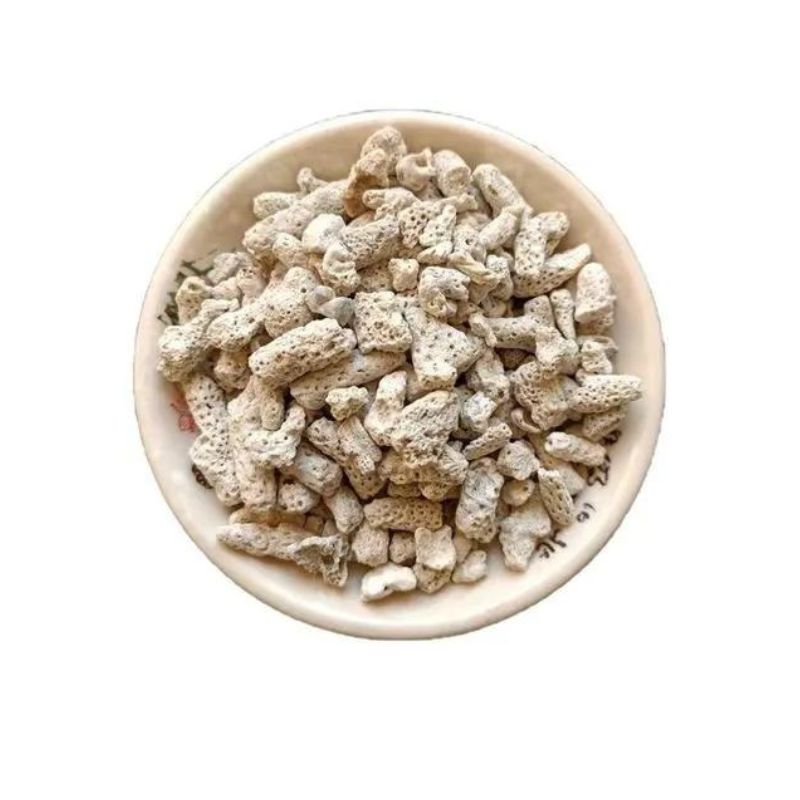
Versatile Application Scenarios and Industry Impact
The unique attributes of coral sands enable its deployment in a multitude of critical B2B applications, demonstrating significant impact across diverse industries that demand precise water quality management. Its versatility extends beyond simple filtration to active water conditioning.
Aquaculture and Commercial Fisheries
In large-scale aquaculture operations, particularly for marine and brackish water species, maintaining stable water chemistry is paramount for animal health and growth. Our coral sands serve as an excellent substrate in biofilters for denitrification and provide crucial buffering against the acidification caused by metabolic waste. This ensures optimal conditions for aquatic life, reducing stress and mortality rates. This application is vital for operations worldwide, including specialized facilities such as those in regions like Hilton Head, where the delicate balance of aquatic ecosystems is carefully managed for both commercial and environmental purposes.
Industrial Water Treatment and Process Water Management
Industrial processes, ranging from power generation to chemical manufacturing, often require specific water parameters to prevent equipment corrosion, scaling, or product contamination. Crushed coral sand is utilized for post-RO (Reverse Osmosis) remineralization, neutralizing aggressive water, and enhancing alkalinity in feed water systems. This protects expensive infrastructure, reduces maintenance downtime, and ensures process stability. Industries such as petrochemical and metallurgy rely on such precise water conditioning to prevent asset degradation and optimize operational efficiency.
Municipal Water Supply & Drainage Systems
For municipal water providers, the challenge often lies in delivering water that is not only safe but also palatable and non-corrosive. Coral sands can be integrated into post-treatment stages to adjust pH, add beneficial minerals, and stabilize water hardness. This makes the water less aggressive towards distribution pipelines, reducing lead and copper leaching, thereby enhancing public health and extending infrastructure lifespan. In drainage systems, it can aid in neutralizing acidic effluent before discharge, ensuring compliance with environmental regulations.
Research and Development Laboratories
Scientific and pharmaceutical research facilities require ultra-pure water with tightly controlled parameters for experiments involving delicate biological cultures or chemical reactions. Coral sands provides a natural and consistent source of alkalinity and minerals, critical for creating reproducible and stable aquatic environments in experimental setups and animal husbandry for laboratory subjects.
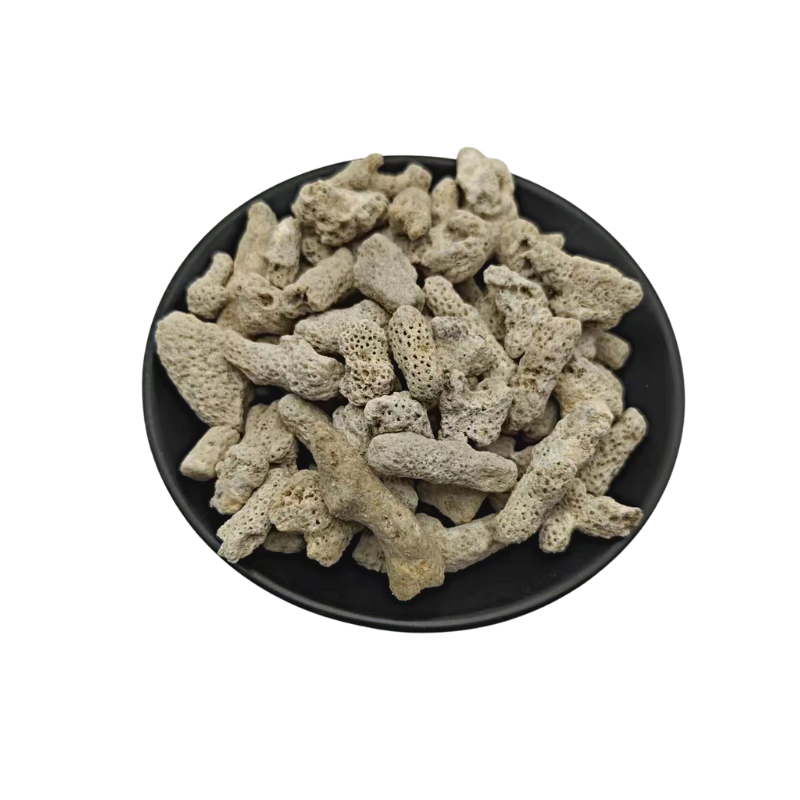
Customized Solutions and Vendor Comparison
Recognizing that no two B2B applications are identical, we offer highly customized solutions for our coral sands to precisely match client specifications. This flexibility, combined with our commitment to quality, sets us apart in a competitive market.
Tailored Solutions for Specific Demands
- • Granulometry Control: We can custom-grind and screen crushed coral sand to achieve specific particle size distributions, from fine powders for chemical processing to coarse aggregates for high-flow filtration beds. This ensures optimal hydraulic characteristics and filtration efficiency for your unique system.
- • Chemical Purity & Blending: While our standard coral sands are ≥98% CaCO3, we can provide material with even higher purity or create custom blends with other inert media (e.g., quartz, activated carbon) to achieve multi-functional filtration layers.
- • Packaging & Logistics: From 25kg bags to 1-ton bulk sacks or custom container111s, we provide flexible packaging options and logistical support to ensure timely and cost-effective delivery to your facility, anywhere in the world.
- • Technical Consultation: Our team of water treatment specialists provides expert guidance on optimal media selection, system design, and performance optimization, ensuring you get the most out of your coral sands investment.
Vendor Comparison: Shunshun Mining vs. Generic Alternatives
When evaluating suppliers for natural filtration media, distinguishing between high-quality, specialized products and generic alternatives is critical. Below is a comparison demonstrating the advantages of Shunshun Mining's "Wholesale coral sand aquarium water filtration special."
| Feature | Shunshun Mining Coral Sand | Generic Crushed Coral/Limestone |
|---|---|---|
| CaCO3 Purity | ≥ 98% (Guaranteed) | Often 90-95%, variable |
| Particle Size Uniformity | High UC < 1.6 (Precise screening) | Variable, higher UC (Less precise screening) |
| Pre-Washing & Cleanliness | Multi-stage washing, minimal fines | Often minimally washed, significant dust/fines |
| Trace Element Profile | Consistent, beneficial (Mg, Sr) | Variable, potentially undesirable elements |
| Certifications & Standards | ISO 9001, ANSI/AWWA B100-17 | Often lacking formal certifications |
| Technical Support | Dedicated specialists, application guidance | Limited or no technical assistance |
| Sustainability Sourcing | Ethically sourced, non-living deposits | Unspecified or potentially unsustainable |
| Consistency & Reliability | High batch-to-batch consistency | Variable, unpredictable performance |
This comparison highlights that while generic options may appear cost-effective initially, the long-term operational benefits, reliability, and technical support offered by specialized coral sands like ours translate into superior value and reduced total cost of ownership for B2B clients.
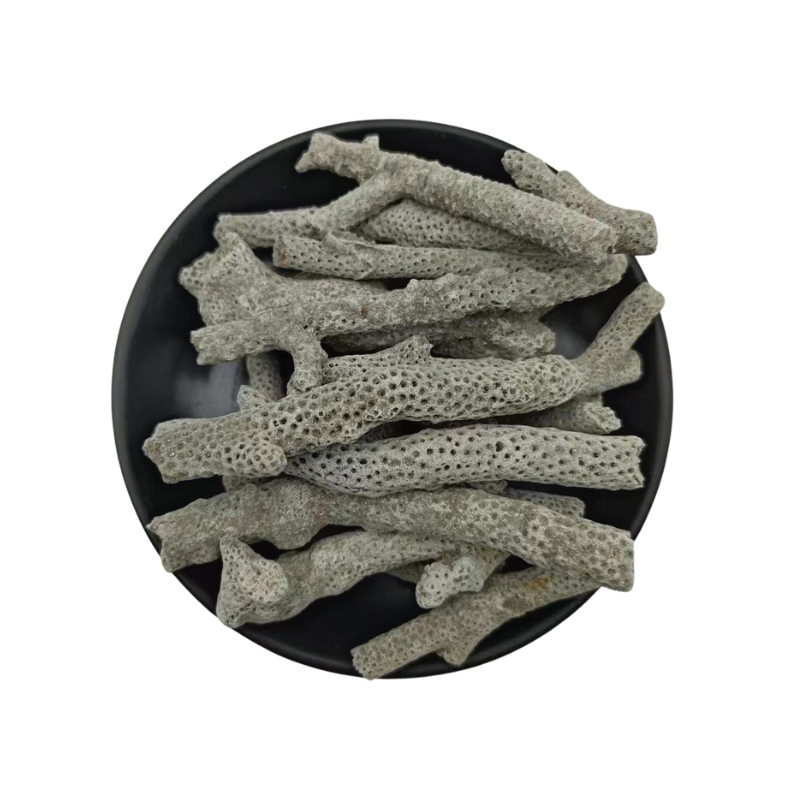
Application Case Studies: Proving Efficacy in Real-World Scenarios
The practical deployment of our coral sands in various B2B environments consistently demonstrates its effectiveness and the tangible benefits it brings to complex water management challenges. These case studies exemplify the value of investing in high-quality filtration media.
Case Study 1: Large-Scale Marine Aquaculture Facility
A major marine fish farm, operating a recirculating aquaculture system (RAS) with a total volume of 500,000 liters, faced persistent issues with pH instability and declining alkalinity, leading to increased fish stress and reduced growth rates. Traditional methods of chemical buffering were proving costly and difficult to manage consistently. Upon consultation, Shunshun Mining recommended replacing a portion of their inert biofilter media with our specialized crushed coral sand (2-5mm grade).
Outcome: Within three months, the facility reported a remarkable stabilization of pH, consistently maintaining levels between 8.1 and 8.3, and a significant increase in carbonate hardness (KH) from 4 dKH to 8 dKH. This led to a 15% improvement in fish growth rates, a 10% reduction in mortality, and a 30% decrease in chemical buffer consumption. The client noted the media's longevity and ease of integration as significant operational advantages.
Case Study 2: Industrial Wastewater pH Neutralization
A chemical processing plant was struggling to meet stringent effluent discharge pH regulations. Their wastewater, highly acidic (pH 4.0-5.0), required significant alkaline chemical dosing, incurring high costs and generating sludge. They sought a more sustainable and cost-effective neutralization method. We provided them with a custom blend of coarser grade coral sands (5-10mm) for a packed bed reactor designed for passive pH adjustment.
Outcome: The new system effectively raised the effluent pH to a compliant range of 6.5-7.5, with minimal chemical intervention. This resulted in an 80% reduction in caustic soda consumption and an estimated annual savings of $75,000 in chemical and sludge disposal costs. The inherent corrosion resistance offered by the media also extended the lifespan of their downstream piping.
Case Study 3: Municipal Water Post-Treatment Remineralization
A municipal water utility providing water to a community, including an area similar to Hilton Head, experienced complaints about the "flat taste" and corrosivity of its desalinated water. The reverse osmosis (RO) permeate had very low alkalinity and pH, leading to potential pipe degradation. The utility deployed a large filtration bed using our specific coral sands as a remineralization and pH stabilization layer.
Outcome: Post-treatment analysis showed a consistent elevation of pH from 6.0 to 7.8, and an increase in alkalinity, addressing both palatability and corrosivity concerns. Lead and copper levels in tap water significantly decreased due to reduced pipe corrosion. This enhanced public trust and compliance with drinking water standards, demonstrating the versatile benefits of coral sands in public health infrastructure.
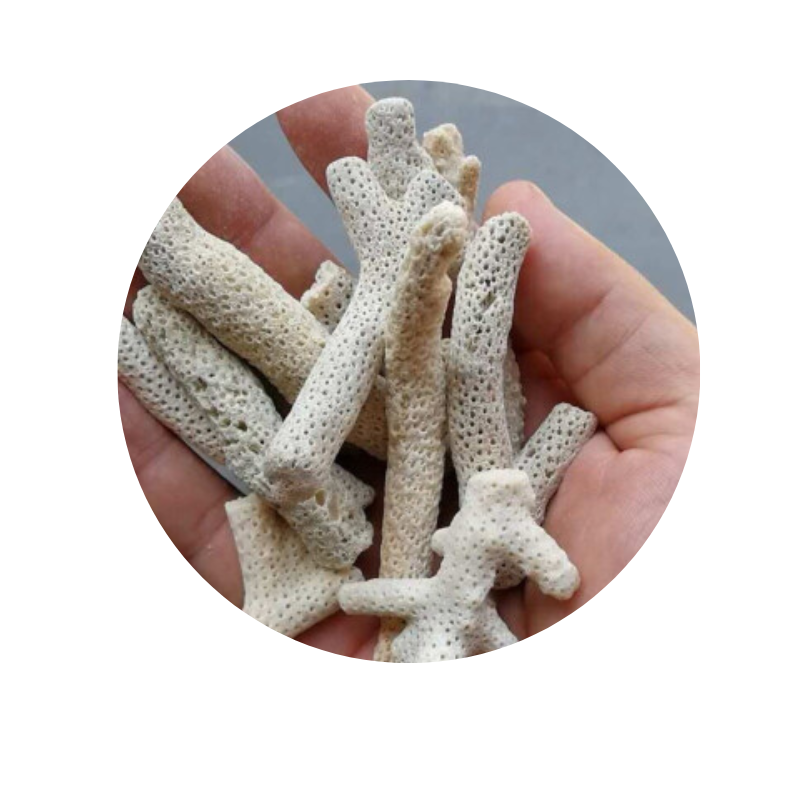
Ensuring Trust and Reliability: Certifications, Support & FAQs
Authoritativeness: Certifications, Partnerships, and Experience
Shunshun Mining is committed to delivering products that not only meet but exceed industry expectations. Our "Wholesale coral sand aquarium water filtration special" is produced under rigorous quality management systems.
- • ISO 9001:2015 Certified: Our manufacturing processes and quality control procedures are certified under ISO 9001:2015, ensuring consistent product quality from raw material sourcing to final packaging.
- • ANSI/AWWA B100-17 Compliance: Our filtration media meets or exceeds the American National Standards Institute / American Water Works Association standards for filtering material, a testament to its suitability for potable water applications.
- • Decades of Industry Experience: With over two decades in the mining and specialized mineral processing sector, Shunshun Mining brings unparalleled expertise to the production of high-grade filtration media.
- • Trusted Partner to Leading Industries: Our clientele includes prominent players in large-scale aquaculture, municipal water utilities, pharmaceutical manufacturing, and specialized chemical processing, underscoring our reliability and product performance.
Frequently Asked Questions (FAQs)
Q: How does coral sands compare to limestone gravel for pH buffering?
A: While both are calcium carbonate-based, coral sands typically offer a more porous structure and higher surface area, leading to more efficient dissolution and a more rapid, yet stable, buffering capacity. Our processing also ensures higher purity and controlled granulometry compared to many generic limestone products.
Q: Is crushed coral sand suitable for freshwater applications?
A: Yes, if the goal is to increase pH and hardness (GH/KH) in freshwater systems, especially for species that thrive in harder, more alkaline water. However, it's crucial to monitor parameters to prevent over-alkalization for soft water species. It's often used in African Cichlid tanks or in municipal applications to raise pH of soft, acidic source waters.
Q: What is the typical lead time for bulk orders of coral sands?
A: Our lead times are optimized for efficiency. For standard product specifications, lead time is typically 2-4 weeks, depending on order volume and destination. Customized orders may require an additional 1-2 weeks for specialized processing. We maintain a robust inventory and logistics network to minimize delays.
Q: What is the recommended backwash frequency for filters utilizing this media?
A: Backwash frequency largely depends on the specific application, influent water quality, and hydraulic loading. However, due to the low uniformity coefficient and controlled particle shape of our coral sands, typical backwash requirements are often less frequent than with irregular-shaped media, optimizing water usage. We recommend consulting our technical specialists for system-specific guidance.
Lead Time, Fulfillment, and Warranty Commitments
We understand the critical nature of supply chain reliability for B2B operations. Shunshun Mining offers competitive lead times, robust logistics, and transparent fulfillment processes. All orders are processed with meticulous attention to detail, from order confirmation to final delivery. Our products come with a standard 12-month warranty against manufacturing defects, underscoring our confidence in their quality and performance. Extended warranty options and maintenance contracts are available upon request for large-scale or long-term projects.
Dedicated Customer Support and Technical Assistance
Our commitment to client success extends beyond product delivery. Shunshun Mining provides comprehensive after-sales support, including dedicated technical assistance for product application, troubleshooting, and optimization. Our team of experienced engineers and water chemistry specialists is available to provide remote or on-site consultation, ensuring seamless integration and optimal performance of our coral sands in your specific systems. We prioritize long-term partnerships built on mutual trust and expert support.
Conclusion
The strategic deployment of high-quality coral sands represents a significant advancement in B2B water treatment and aquatic system management. From stabilizing pH in sensitive aquaculture environments to enhancing the integrity of municipal water supplies and optimizing industrial processes, its unique properties deliver tangible benefits in efficiency, cost-effectiveness, and environmental sustainability. Shunshun Mining’s "Wholesale coral sand aquarium water filtration special" is engineered to meet the most demanding specifications, offering unparalleled purity, consistency, and expert support. As industries continue to seek sophisticated and reliable solutions for water quality challenges, the value proposition of specialized natural filtration media like ours will only grow.
References
- American Water Works Association. (2017). ANSI/AWWA B100-17: Filtering Material. Denver, CO: AWWA.
- International Organization for Standardization. (2015). ISO 9001:2015 - Quality management systems — Requirements. Geneva, Switzerland: ISO.
- Boyd, C. E. (2020). Water Quality in Aquaculture. Auburn University.
- Wetzel, R. G. (2001). Limnology: Lake and River Ecosystems (3rd ed.). Academic Press.
- US Environmental Protection Agency. (2004). Technologies for Removing Fluoride from Drinking Water. Washington, D.C.: EPA.
Share
-
High Purity Fluorite Powder | Industrial & OEM SupplyNewsAug.27,2025
-
High Purity Mineral Sepiolite Powder - Absorbent & VersatileNewsAug.26,2025
-
Premium Coral Sands: Natural Crushed Coral Sand for AquariumsNewsAug.25,2025
-
Bulk Hydrated Lime: High Purity, Fast Reactivity SolutionsNewsAug.24,2025
-
Pure Bentonite Clay: Natural Detox & Skin PurificationNewsAug.23,2025
-
Natural Medical Stone: Healthy & Durable Cookware SolutionsNewsAug.22,2025






